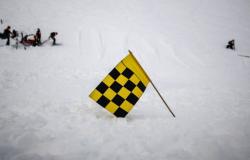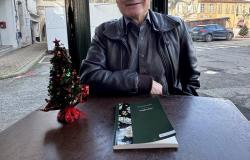Cardinal Miguel Ángel Ayuso Guixot, prefect of the dicastery for interreligious dialogue since 2019, died Monday, November 25. This former missionary in Egypt and Sudan was one of the main architects of interreligious dialogue at the Vatican, and in particular with Islam. This dialogue has become one of the priorities of the Holy See since the election of Pope Francis in 2013, particularly in countries where Catholics are in the minority.
Miguel Ayuso Guixot took over as interim member of the Pontifical Council for Interreligious Dialogue the year of his episcopal ordination, in 2016, when the health of his predecessor Cardinal Jean-Louis Tauran began to decline. He was appointed head of this institution after the death of the French cardinal in 2018. The following year, on February 4, 2019, Pope Francis signed a document on human fraternity with the Grand Imam of Al-Azhar. in Abu Dhabi (United Arab Emirates). It was the first in a series of similar symbolic and diplomatic gestures, the latest example of which was ratified on September 5 in Jakarta, Indonesia, between Pope Francis and the imam of the largest mosque in Asia .
« The world needs fraternity! Coming together to walk together is a way to overcome violence », declared Cardinal Miguel Ayuso Guixot in an interview given to The Cross in February 2020.
Missionary in Africa
Miguel Ayuso Guixot was born in Seville, in the south of Spain, on June 17, 1952. At the age of 21, while studying law, he was intrigued by reading a magazine of the Comboni Missionaries. Their spirituality dedicated to the Sacred Heart of Jesus – theme of the latest encyclical of Pope Francis, He loved us – their sensitivity to intercultural dialogue and their presence in East Africa attracted the young Sevillian, who joined this congregation of Italian origin in September 1973. He took his perpetual vows there and was ordained a priest seven years later, in 1980, before leaving Spain to study at the Pontifical Institute of Arab Studies and Islamology (PISAI).
Having obtained his license in 1982, he moved to Cairo (Egypt), where he was pastor of the Latin community of the Sacred Heart of Abbasiyya. There, a stone’s throw from the Coptic-Orthodox cathedral and Al-Azhar University – with which he would later enter into dialogue on behalf of the Holy See – the young priest in his thirties directs his pastoral work towards welcoming migrants and political refugees from neighboring Sudan, where he was soon sent to continue his mission.
Civil war has just broken out in Sudan, after the government of Gaafar Mohammed Nimeiry imposed sharia law and divided the south of the country. Until 2002, the young missionary directed the catechetical center of the diocese of El-Obeid – which notably includes Darfur. From 1989, he taught Islamology in Khartoum, the capital.
“A better world”
In 2000, he obtained his doctorate in dogmatic theology at the University of Granada (Spain) and continued his teaching activity in Cairo then in Rome, at PISAI, of which he became rector in 2006. The following year in 2007, he is appointed consultant to the Pontifical Council for Interreligious Dialogue, of which French Cardinal Jean-Louis Tauran has just become president.
In 2012, Benedict XVI promoted him to secretary of this same council. Relations deteriorated considerably at the time between the Holy See and Al-Azhar University, after the deadly attacks targeting Copts in Egypt. Francis’ predecessor then counted on the interpersonal relationships established by the former missionary to reconnect with Cairo. Miguel Ayuso Guixot not only accomplishes his mission but multiplies meetings throughout the world with Muslims but also Hindu, Buddhist, Sikh, Shintoist, Confucian leaders…
Is there not a form of naivety in this dialogue, and the risk for the Vatican of being exploited? This was one of the questions that Cardinal Miguel Ayuso Guixot answered in the interview given to The Cross in 2020: « I work with many people and that doesn’t mean I’m ‘playing into their hands’, he explained. The important thing is the desire for dialogue. We do not err by ingenuity: it is a matter of gradually bringing dialogue into people’s minds to establish relationships. » This promoter of fraternal dialogue defended himself from any relativism, from wanting “ create a universal religion ”, but assumed this utopia: “Sopen to the reality of others, while being rooted in our identity, to work for a better world. »






